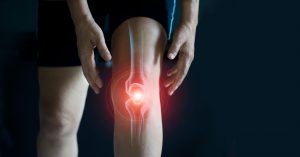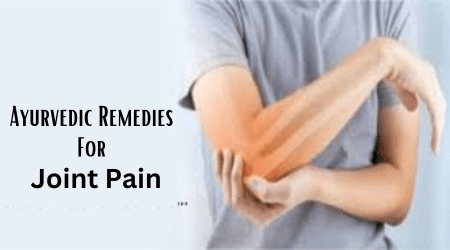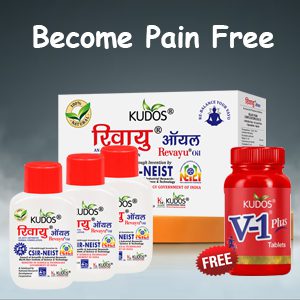Ayurvedic Remedies For Joint Pain: How To Use Joint Pain Tablets And Oil To Relieve Your Symptoms
Joint pain is a widespread condition that affects millions of individuals worldwide. It can manifest as discomfort, stiffness, or inflammation in the joints, impairing mobility and quality of life. The causes of joint pain vary, including factors such as aging, injuries, autoimmune disorders, and underlying medical conditions. As joint pain can significantly impact an individual’s daily activities and overall well-being, finding effective remedies becomes crucial.
Ayurveda, an ancient Indian system of medicine, offers a holistic approach to healing joint pain. Rooted in natural remedies and lifestyle practices, Ayurveda aims to restore balance within the body, addressing the underlying causes of pain rather than just alleviating symptoms. By focusing on a comprehensive approach to healing, Ayurveda provides long-term relief and promotes overall wellness.
Effectiveness of Ayurvedic Remedies:
- Herbal Formulations: Ayurveda utilizes a wide range of herbs with anti-inflammatory, analgesic, and rejuvenating properties to manage pain. To reduce inflammation, relieve pain, and improve joint health, Ayurvedic formulas frequently employ herbs including turmeric, ginger, boswellia, and ashwagandha. These herbs work synergistically to provide long-lasting relief from joint discomfort.
- Panchakarma Therapies: Ayurveda employs specialized detoxification therapies known as Panchakarma to eliminate accumulated toxins in the body, which can contribute to joint pain. Treatments like Abhyanga (therapeutic oil massage), Swedana (herbal steam therapy), and Basti (medicated enemas) help to cleanse the body, reduce inflammation, and improve joint mobility. Panchakarma therapies also support the overall well-being of an individual, enhancing the body’s natural healing abilities.
- Dietary Recommendations: Ayurveda emphasizes the importance of a balanced diet tailored to an individual’s dosha (mind-body constitution). Specific foods and spices are recommended to reduce inflammation and promote joint health. For example, incorporating omega-3 fatty acids found in flaxseeds and walnuts, as well as incorporating warming spices like turmeric, cinnamon, and cumin can provide relief from pain. Ayurvedic dietary guidelines also advocate avoiding processed foods, excess sugar, and unhealthy fats, which can aggravate joint inflammation.
- Lifestyle Modifications: Ayurveda recognizes the interconnectedness between the body, mind, and environment. Lifestyle modifications such as regular exercise, stress management techniques like yoga and meditation, and adequate rest are essential components of an Ayurvedic approach to joint pain. These practices not only help in reducing pain and inflammation but also contribute to overall well-being.
Joint Pain:

Joint pain is a prevalent condition that affects individuals of all ages, significantly impacting their daily life and overall well-being. It refers to discomfort, inflammation, or stiffness experienced in the joints, which are the connections between bones that allow movement. Joint pain can range from mild to severe, and it may occur in one or multiple joints throughout the body. Understanding the causes of pain is essential for effective management and improved quality of life.
Common Causes of Joint Pain:
- Arthritis: One of the most typical causes of pain is arthritis. It is a broad term encompassing various conditions characterized by joint inflammation. The two primary types are:
- Osteoarthritis: This occurs due to the wear and tear of joint cartilage over time, leading to joint pain, stiffness, and reduced mobility. Weight-bearing joints like the spine, hips, and knees are frequently impacted.
- Rheumatoid Arthritis: An autoimmune disease where the immune system mistakenly attacks the lining of the joints, resulting in pain, swelling, and joint deformity. Rheumatoid arthritis can affect multiple joints simultaneously and may lead to systemic symptoms such as fatigue and malaise.
- Inflammation: Joint pain can also be caused by inflammation resulting from conditions such as:
- Gout: A type of arthritis caused by the buildup of uric acid crystals in the joints, often affecting the big toe. It leads to sudden and severe joint pain.
- Bursitis: Inflammation of the fluid-filled sacs (bursae) that cushion the joints, commonly affecting the knees, hips, and shoulders. Bursitis causes localized pain, tenderness, and swelling.
Injuries and Overuse
Joint pain can arise from injuries or overuse, including:
- Sprains and Strains: Overstretching or tearing of ligaments (sprains) or muscles/tendons (strains) surrounding the joints. This can result from accidents, sports-related activities, or repetitive motions.
- Tendinitis: Inflammation of tendons due to overuse or repetitive motions. It frequently affects the shoulders, elbows, wrists, and knees, causing pain and restricted movement.
Impact of Joint Pain on Daily Life
Joint pain can significantly impact an individual’s daily activities and overall quality of life. The following are some common effects:
- Mobility Limitations: Joint pain can restrict movement, making it challenging to perform routine tasks such as walking, climbing stairs, or bending. This can lead to a loss of independence and reduced physical activity levels.
- Discomfort and Pain: Persistent joint pain can cause discomfort and hinder the enjoyment of daily activities. It may interfere with sleep patterns, leading to fatigue and decreased productivity.
- Emotional Well-being: Chronic joint pain can impact emotional well-being, leading to frustration, stress, anxiety, and even depression. The constant pain and limitations may affect personal relationships and overall mental health.
- Lifestyle Modifications: Individuals with joint pain often need to make lifestyle modifications, such as avoiding certain physical activities, using assistive devices, or making ergonomic adjustments at home or work. These adaptations can disrupt daily routines and impose additional challenges.
Ayurvedic Remedies for Joint Pain:
Ayurvedic Lifestyle Practices for Joint Pain:
- Daily Routines and Habits: Ayurveda emphasizes the importance of a balanced daily routine (Dinacharya) to support joint health. This includes waking up early, practicing gentle stretching or yoga exercises, and engaging in regular physical activity suitable for your body type and condition. Adequate rest and sleep are also essential for joint recovery and overall well-being.
- Proper Nutrition and Diet: Ayurveda recognizes the role of nutrition in managing joint pain. A diet rich in anti-inflammatory foods helps reduce joint inflammation and supports joint health. Include foods such as fresh fruits, vegetables, whole grains, lean proteins, and healthy fats like omega-3 fatty acids found in flaxseeds and fatty fish. Avoiding processed foods, excess sugar, and unhealthy fats is also recommended to minimize joint inflammation.
Ayurvedic Herbs for Joint Pain Relief:
- Ashwagandha: Ashwagandha is an adaptogenic herb known for its anti-inflammatory properties. It helps reduce joint pain, inflammation, and swelling, promoting joint mobility and flexibility. Additionally, Ashwagandha supports overall strength, stamina, and stress management, which can be beneficial for individuals with joint pain.
- Turmeric: Turmeric contains a compound called curcumin, which exhibits powerful anti-inflammatory and antioxidant properties. It helps alleviate joint pain by reducing inflammation and oxidative stress. Consuming turmeric as a spice or incorporating turmeric supplements can be effective in managing joint pain.
- Shallaki (Boswellia): Shallaki, also known as Boswellia, possesses anti-inflammatory and analgesic properties. It helps reduce joint inflammation, relieve pain, and improve joint flexibility. Boswellia supplements or topical preparations can be used for targeted relief from joint pain.
Ayurvedic Joint Pain Tablets:
Ayurvedic joint pain tablets are formulated using a combination of herbs and natural ingredients that provide comprehensive relief. Some key ingredients in these tablets include:
- Guggulu: Guggulu is a resin known for its anti-inflammatory properties. It helps reduce joint swelling, stiffness, and pain. Guggulu also supports the body’s natural detoxification process, promoting joint health.
- Shilajit: Shilajit is a mineral-rich substance that supports joint strength, reduces inflammation, and improves joint mobility. It contains beneficial minerals and fulvic acid, which aid in joint repair and regeneration.
- Nirgundi: Nirgundi, also known as Vitex negundo, is a potent herb used in Ayurveda to relieve pain and inflammation. It helps relax muscles and reduce joint swelling, promoting comfort and mobility.
Ayurvedic Oils For Joint Pain :
Ayurvedic oils have been used for centuries to alleviate joint pain and promote joint health. These oils are formulated with a combination of herbal ingredients known for their anti-inflammatory, analgesic, and rejuvenating properties. When applied through massage, these oils penetrate deep into the joints, providing relief from pain, reducing inflammation, and improving mobility. Let’s explore some commonly used Ayurvedic Oils For Joint Pain and their application techniques.
Instructions for Oil Application and Massage:
- Start with clean, dry skin. Ensure that there are no cuts or wounds on the affected area.
- Warm the oil slightly by placing the bottle in warm water or using a double boiler method. Do not microwave the oil.
- Begin massaging the oil onto the affected joints using gentle, circular motions. Apply moderate pressure without causing discomfort.
- Massage for 10-15 minutes, focusing on the specific areas of pain or stiffness.
- After the massage, leave the oil on the joints for at least 30 minutes to allow absorption.
- For maximum benefits, cover the joints with a warm towel or wrap them with a cloth to retain heat during the oil absorption period.
- After the recommended duration, rinse off any excess oil with lukewarm water or wipe it off gently with a soft cloth.
- It is advisable to perform the oil massage regularly, preferably once or twice a day, for optimal results.
Conclusion:
Ayurvedic remedies provide an effective and holistic approach to relieving joint pain and promoting joint health. From lifestyle practices and herbal remedies to specialized Ayurvedic joint pain tablets and therapeutic oils, Ayurveda offers a comprehensive toolkit for managing joint discomfort.
By incorporating Ayurvedic lifestyle practices such as maintaining a balanced daily routine and adopting a nourishing diet, individuals can support their joints and reduce inflammation. Ayurvedic herbs like Ashwagandha and Turmeric provide natural relief by targeting inflammation and promoting joint flexibility. Ayurvedic joint pain tablets containing ingredients like Guggulu, Shilajit, and Nirgundi offer comprehensive support for pain relief and joint health. By embracing Ayurveda’s holistic approach, individuals can experience the benefits of these remedies and improve their joint health over time. With dedication and a commitment to self-care, individuals can find relief from joint pain, restore mobility, and enhance their overall quality of life.
Recommended Joint Pain Medicine
Joint Pain Medicine, a reliable solution to alleviate discomfort, improve mobility, and enhance your overall quality of life. We understand the challenges and limitations that joint pain can impose on daily activities, which is why we have carefully selected this medicine to target joint-related concerns effectively.




